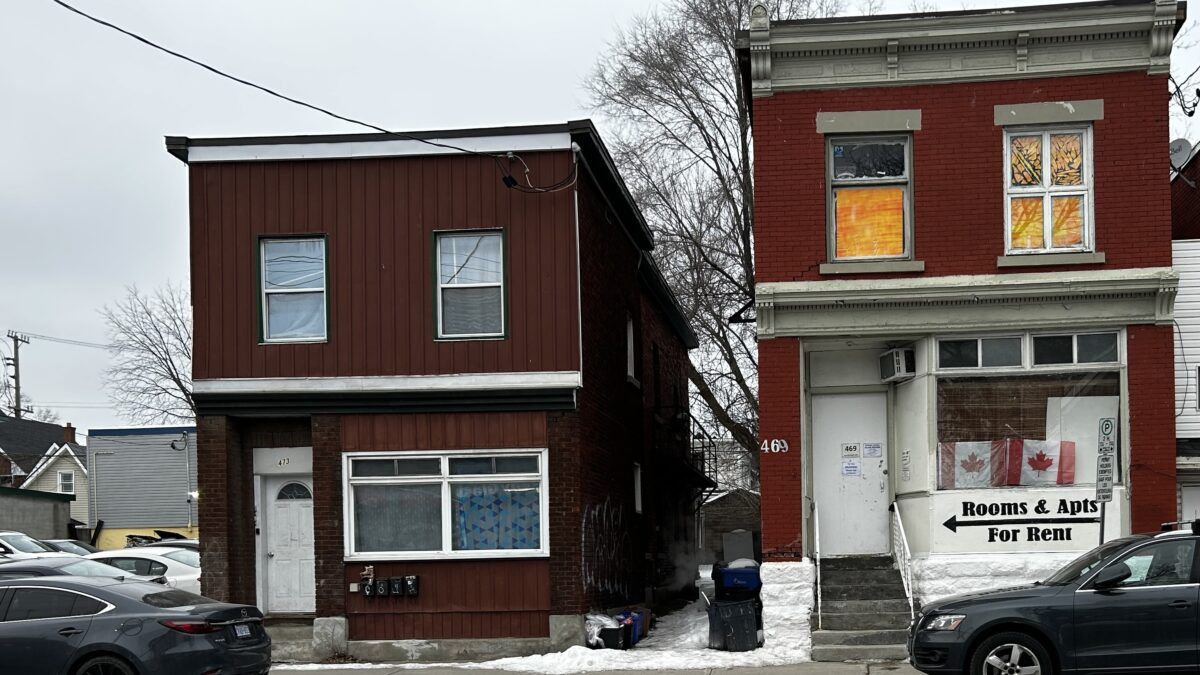Affordable accommodation is hard to find because of inflation and that is putting intense pressure on renters in Ontario, a review of data shows.
In December 2023, Ontarians paid about seven per cent more in rent compared to the same period in 2022, according to an analysis of Statistics Canada’s Consumer Price Index data.
Sophia Crysler knows all about paying more in rent. As a nursing student at the University of Ottawa, her professors tell her not to get a job to keep up with her heavy workload.
She's not listening because she can't afford to.
Instead, she works 30 hours a week in two jobs and that's on top of homework and her classes.
The effort allows her to live in a small apartment in Sandy Hill, paying about $700 a month with three roommates, the lowest she could find near campus.
"Most places are sitting around $800, $900," she said. "The place that I'm living now, the rent is not stable. It just keeps going up.”
Gabby Horan is familiar with stories such as Sophia's. She works with Cityview Rental Services and is also a landlord. She said that a large reason for increased prices is a lack of available rental units.
"When you have very, very few apartments and a lot of tenants, you suddenly create a situation where you force the price up," said Horan.
"Inflation is primarily a monetary phenomenon, in other words, if there's a large increase in the supply of money, inflation tends to go up," said Vivek Dehejia, an associate professor of economics at Carleton University.
Dehejia said that there are two main reasons for the inflation on rent to rise. One reason is that during the COVID-19 pandemic there was a dramatic increase in government spending to help people through the ups and downs of COVID. Second, there is not enough housing in areas that people want to live.
Sophia Crysler has moved twice in the past three years and noticed a stark increase in prices the second time around; rental prices in Canada increased by 8.6 per cent between December 2022 and December 2023, according to Rental.ca’s January 2024 rent report.
Crysler blames the increase to corporations buying old buildings, renovating them and then increasing the price, a trend that Rosalea Thompson, a lawyer with the Advocacy Centre for Tenants Ontario, has also noticed.
Corporate landlords are nothing new, but their presence in Ottawa has increased dramatically recently. Thompson said the rental market is becoming increasingly profit-oriented.
"These are not the Mom and Pop landlords of the past, which still exist, of course, but more and more we're seeing the rental housing sector being financialized," she said. "There are not enough tenant protections to prevent corporate landlords from utilizing existing avenues, and our legal system, to evict people."
According to Thompson, the average cost of a one-bedroom apartment in Ottawa is now $2,000. "Those are Toronto prices," she said.
Rental inflation should be around the overall inflation rate, around 3.4 per cent today, said Dehejia. He said inflation on rent double the overall rate is extremely unusual.
“Most of the jobs are in the big cities, Toronto, Vancouver, Montreal, and so forth, where there is certainly a shortage of housing and so with a lot of people looking to rent or looking to buy, and not much that's affordable,” said Dehejia. “Within what's allowed by the law, landlords can jack up the rent that they charge in simple terms, but it's not entirely the landlords, their high interest rates, their costs have also gone up.”
Horan agrees.
"The mortgage rate went up, and that is crucial. Because in some people's minds, they see a building and they think the landlord owns it. But the bank really owns it, and the landlord works for them," said Horan.
This can cause some perverse outcomes.
For example, in Toronto, Horan says, some landlords are selling properties bought after 2018 in part because the buildings aren't rent controlled because of a provincial law.
"This is something tenants are really looking out for now, so these places aren't being rented," explained Horan.
The controversial law was created to provide more projects for construction workers, but Thompson said this legislation can be abused by landlords looking to increase their profit.
"They may strategically increase [rent] by so much that it causes the tenant to leave, and then they can re-rent the unit to tenants who will pay that increased amount," said Thompson.
Ontario aims to build 1.5 million homes before 2032 to elevate pressure on the housing market.
"If you want to solve the housing crisis by building more houses in a hurry, that's one way to do it," said Horan. "I hope they do not use rent control, because making something cheap does not mean it is going to be good."
Despite her high expenses, Crysler believes she's incredibly lucky to have bills as low as she does. She says that if she were to move, her rent would only go up.
“Our rent increases by 1.5 per cent [every year]. If I was looking to move, but I’m not, most places are increasing by 2.5 or 3.5,” she said. “It’s just skyrocketing all around us. It’s nice. I got lucky.”




